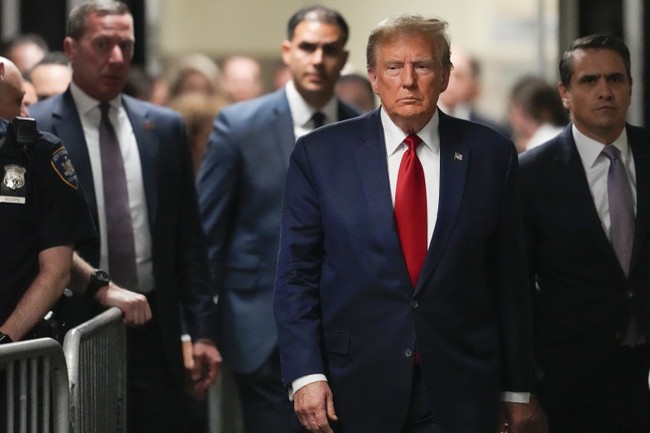
Could Leticia James’ attempt to bankrupt her political bete noire come to a crashing end? Donald Trump tried before and during the massive fraud lawsuit to get an intervention from the New York state appellate court to no avail. Trump had to put up a massive bond to force the judgment into review, in fact.
But now that the appellate court has finally reviewed the case, the judges sound very skeptical about James’ case as well as the absurd award in a case that involved literally no losses to anyone connected to Trump’s businesses:
A New York appeals court expressed skepticism on Thursday about a civil judgment of more than $450 million that a trial judge had ordered former President Donald J. Trump to pay after finding that he had fraudulently inflated his wealth.
At a hearing in Manhattan, members of a five-judge panel questioned both the size of the judgment and the validity of the case, which New York’s attorney general brought against the former president and his family business two years ago.
The reporting from the New York Times make it sound like James got little sympathy from the judges. It’s always dangerous to read too much into the Socratic questioning used by jurists in appellate hearings, but the pull quotes offered by the NYT sound pretty encouraging for Trump. The report describes Judge Peter Moulton as the most supportive of James’ presentation, but even Moulton marveled at the size of Judge Arthur Engoron’s award for a case without any losses or victims:
Toward the end of the hearing, Justice Moulton asked how the attorney general’s office could “tether the amount that was assessed” by Justice Engoron “to the harm that was caused here, where parties left these transactions happy about how things went down?”
Nor was Moulton alone in that skepticism. Don’t forget that the purported victim of the fraud, Deutsche Bank, had long done business with Trump and used its own valuations in structuring their lending for Trump Organization projects. Not only did they know what the properties were worth, they got paid back in full and testified that they would prefer to keep doing business with Trump in the future.
Two other judges expressed skepticism over the award and the case:
Justice Friedman, who appeared the most skeptical of the case, asked Ms. Vale to identify any other case in which the attorney general’s office had sued “to upset a private business transaction that was between equally sophisticated partners.”
Before she could respond, Dianne T. Renwick, the court’s presiding justice, who generally seemed supportive of the case, added her own question. “And little to no impact on the public marketplace?” she asked.
Not to mention so little impact on the supposed victim, too. How many fraud “victims” want to do more business deals with their purported victimizer? James’ team argued that a prior case involving now-defunct Lehman Brothers provided them precedent to pursue fraud regardless of those considerations, but Friedman rebutted that by reminding the AG’s team that the Lehman Brothers case involved unsophisticated consumers as victims, not a global-stature investment bank that was satisfied by the results of the transactions:
“That hardly seems that it justifies bringing an action to protect Deutsche Bank against President Trump,” he said, adding: “You’ve got two really sophisticated parties in which no one lost any money.”
That gets to the absurdity of the case itself, not to mention the award. Two of the judges wondered what “guardrails” exist to keep an AG from going wild on her political opponents or disfavored businesses. That question became acute before and during the trial, with Governor Kathy Hochul at one point assuring investors that Donald Trump was a special case … which is apparently what the appellate jurists are worried about, too.
We’ll see what they decide relatively soon, but Trump and his team must feel pretty good about the hearing. The judges may not have said the word lawfare, but at least a couple of them are thinking it.




